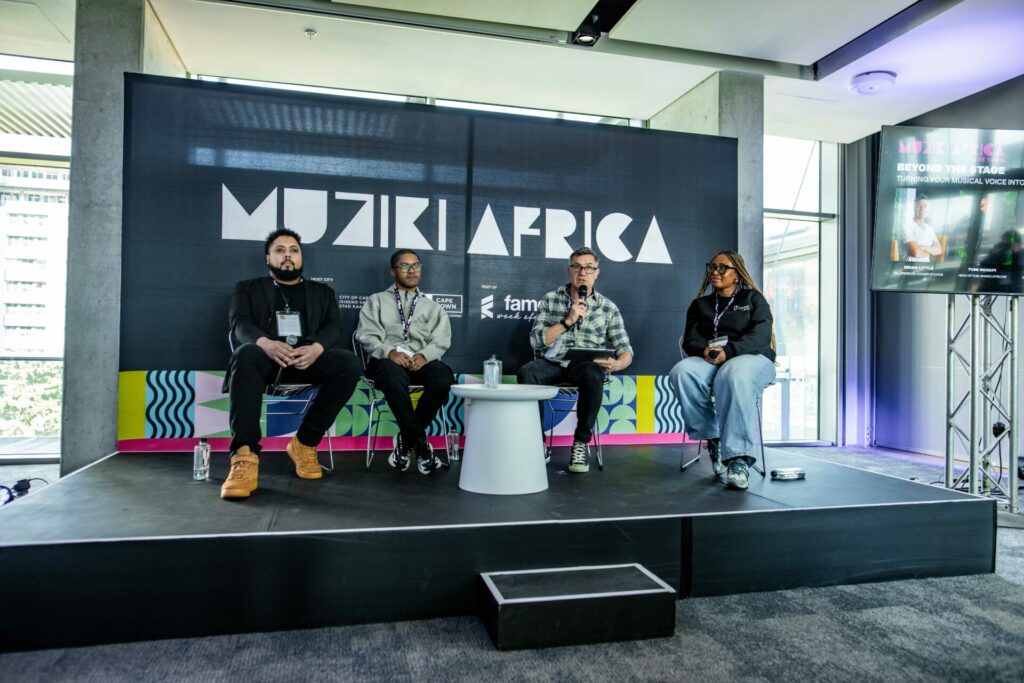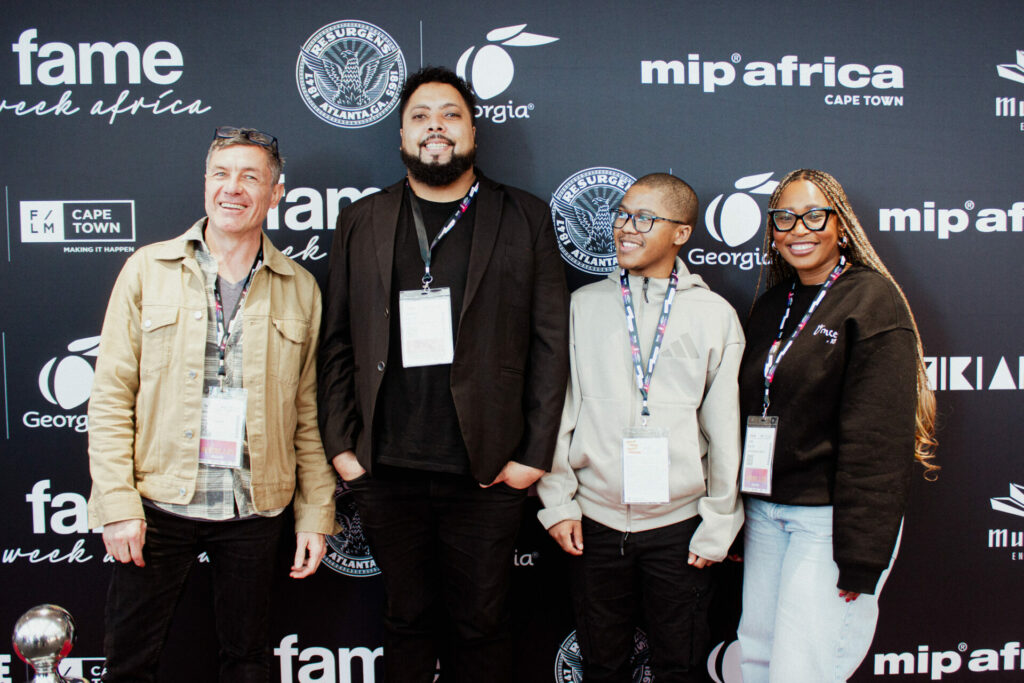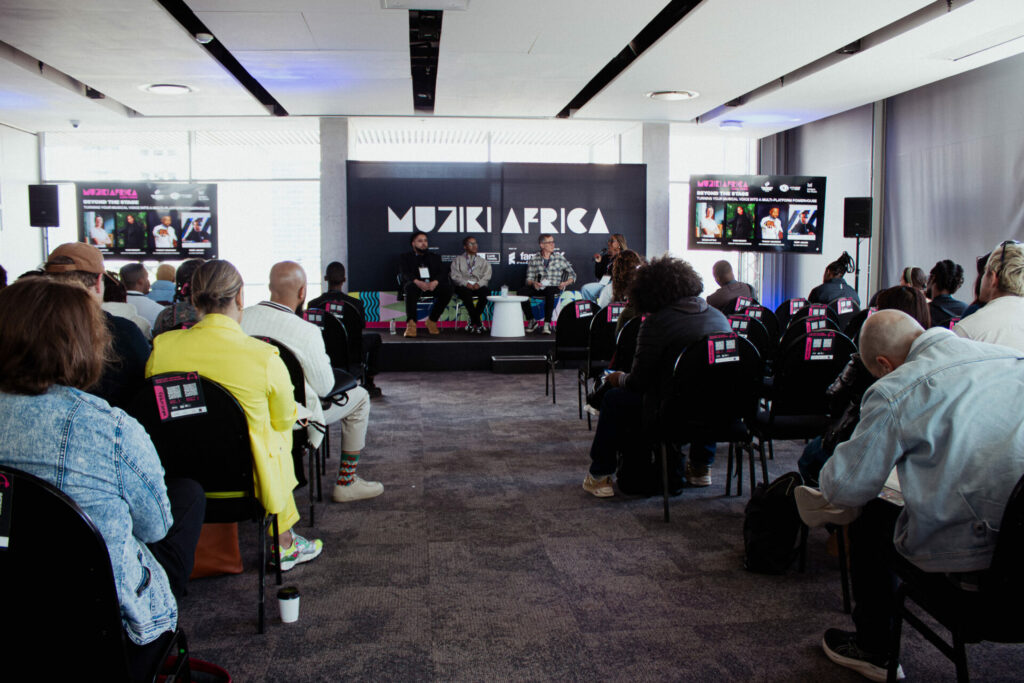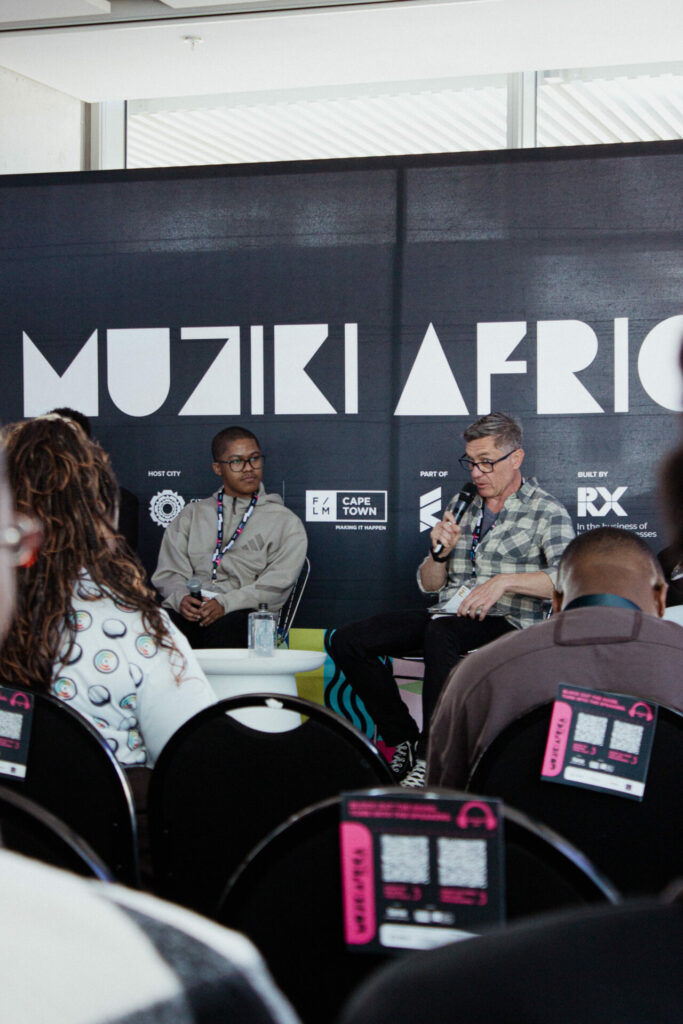FAME Week Africa 2025 Panel Recap
At FAME Week Africa 2025, Pressure Cooker Studios was joined by its strategic partners Africori and Bridges for Music to host an inspiring panel: Beyond the Stage. The discussion explored how today’s artists can grow their creative reach – and their income – beyond the stage and playlists, by tapping into opportunities such as sync licensing, scoring for gaming, branding, and immersive audio.
The panel featured Brian Little, General Manager at Pressure Cooker Studios, alongside Tumi Mogapi, Head of Publishing at Africori; DJ and Composer Rudy Julius (a Bridges for Music alumnus and graduate of Pressure Cooker’s 15-month internship programme); and Damien Malgas, Industry Access Manager at Bridges for Music. Together, they unpacked how musicians can transform their creativity into sustainable, multi-platform careers.
This vision is already shaping our work with Bridges for Music through The Alumni Collection Vol.1, a 10-track album available on our Pressure Music Catalogue. The project enables Bridges for Music graduates to generate income from their music while gaining exposure to the global media industry. Together with our partners at Africori, we are also bringing unreleased music from artists into the Catalogue, guided by composer Cobus Schutte and the visionary behind the Catalogue itself, ensuring these works don’t gather dust in the archives but instead find new life and opportunity. It stands as a tangible example of how artistry can thrive across multiple platforms.



Q&A: Brian & Rudy on Going Beyond the Stage
to brian little:
What was the key message you wanted the audience to take away from the panel?
The message was multi-pronged. First, to highlight the real opportunity that exists in licensing and sync by connecting artists to actual demand. Second, to show that with a bit of intention and organisation, artists can leverage existing or unreleased music, including alternate versions or iterations of commercially released work for production music.
The broader point was that the world of music and media represents a genuine business opportunity, and it was important to demonstrate how attainable that is.
What opportunities beyond performance are most exciting, or underutilised for artists right now?
One of the biggest underutilised opportunities is all the music that sits on artists’ hard drives or in storage, never released.
That unreleased work can be placed into catalogues for licensing, becoming a lucrative supplementary revenue stream with minimal extra effort. It’s about maximising an artist’s creative output rather than letting it gather dust. And naturally the growing spotlight and demand for African sounds, puts these artists in a prime position to exploit the opportunity and current global appetite.
How does the Bridges for Music album reflect this idea of music as more than just a stage?
The music on the album was originally created with performance or streaming in mind, and it served its purpose in helping these young artists develop their craft as part of their Bridges for Music final course submission.
By repurposing it for media, the album reframes this work as an actual asset with long-term value. It reflects the idea that music isn’t only for the stage, it can also live on in new contexts, like film, TV, or advertising, opening up broader possibilities for impact and income.

TO RUDY JULIUS:
What did it mean to you to be on that panel, not just as an artist, but as a Bridges for Music and Pressure Cooker Studios Intern graduate?
It was an honour to join this panel, alongside Bridges for Music and Pressure Cooker Studios, both of whom have played a key role in helping me build my career.
What excites you most about exploring opportunities for your music beyond live performance, and how do you see this shaping your career going forward?
Creating music where you build a world that represents the picture, or the feeling it conveys, has always fascinated me. It excites me to explore more than just one direction of a music genre. I feel this shapes my career by pushing me to be more creative while staying relevant to modern audiences, which is a huge bonus when writing to picture.
What advice would you give to other emerging musicians about expanding their careers beyond the stage, based on what’s worked for you so far?
Being hungry to learn and practicing by re-writing commercial music in your own way can help build a catalogue to showcase to music supervisors. It’s equally important to reach out to them and focus on building relationships within the music industry.
How has your experience at Pressure Cooker Studios opened your eyes to new creative paths?
Being able to do most of the things I always wished and dreamt of doing has been incredible. Writing music to a brief, and learning to truly understand a brief, opened many doors for me. I can now confidently say what I can or can’t do. Collaboration also played a big role in my internship at Pressure Cooker Studios.
Want to hear what “beyond the stage” sounds like?
Stream the Bridges for Music x Pressure Cooker Studios album, a showcase of young African talent stepping boldly into new creative territories.
You can also explore curated Africori playlists, highlighting a diverse range of emerging voices and unreleased gems now featured in the Pressure Music Catalogue.